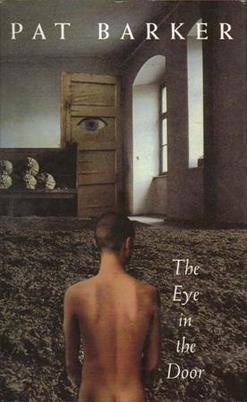What do you think?
Rate this book


280 pages, Paperback
First published January 1, 1993

"If you say, "I think it's morally wrong for young men to be sent out to slaughter each other," God help you."Very little has changed since I read, reviewed, and hung on to Regeneration for dear life. I still live at home, am mistaken for a fifteen-year-old more often than not, and pace myself through books at an obscene rate. The only difference is that I can lay claim to a few more labels: English graduate, bisexual, job holder. In the eyes of many, since I achieved this at twenty-five-years-old rather than twenty-one, I am a failure. In the eyes of myself, I know that there are many others besides these failure-labelers who would prefer to see me dead. I suppose this is why reading this is a 'comfort' of sorts, certainly more comfortable than the Black Lamb and Grey Falcon morass I'm slogging through with its tidbits of actually valuable insight drowned in every death-dealing hypocrisy known to white cis het able woman and then some. Here, insanity and non-heteronormativity is a given, and in this case is even more welcome, as the LGBTQIA+ acronym does not mean LG is not a stronghold where biphobia runs rampant. If sex with multiple genders of the dichotomy disgusts you, if those who do not ask how high when you tell them to jump on the sanity scale scare you, fuck off. Both are me, and I have enough shit to deal with offline without the likes of you.
One began by finding mental illness mystifying, and ended by being still more mystified by health.Much like my own life trajectory, you can't really say anything happens during the course of this novel. People come and go in the jails and the psyche wards. Some of them 'pass' in whatever way is demanded at the time, which can be all or nothing depending on whether women, insanity, non-heteronormativity, or a foreign power is perceived as the greatest threat. Various historical events happen, all of them very titillating until the boredom sets in, for the same things happen today under all the new names and the new faces and the new military industrial complexes. The only difference is that there is a greater propensity to set certain events in stone as with the grandiose title of It Could Not Have Happened Until Now. Reading Regeneration three years ago set yet another ball rolling to the point that I can no longer term its sequel a favorite, but I still deeply appreciate how utterly well crafted this is: raw when I need it to be, suppressed when I need it to be, as the chemicals of my brain have yet to be balanced out by a full time job with health insurance. Until that future guarantee arrives under a true oppression-blocking sky and I can turn my way to calmer shores, persecution and self-hatred and paranoia directed at outward forces only outweighed by paranoia directed at inward is my bread and butter. I can't speak for those who don't say the same. They are blessed by a biology that fits what was prescribed as the norm a few centuries ago, and when the world outgrows this skeleton, their reckoning is their own to deal with.
In the end moral and political truths have to be proved on the body, because this mass of nerve and muscle and blood is what we are.While I have a vague interest in putting off the finishing of the trilogy for another three years as a sort of masochistic time capsule, one of the lessons I've found necessary to learn is that my naturally self-starving type needs to indulge when they can. In any case, I know for certain that in three years, I'll either be in grad school or on my way to a masters in library science. Neither path is what is advised these days, but the birth of people like me is subtly worked against as well, so I may as well pursue what I love. If someone wants to cry over my spilled milk, exit stage left. The tears of the self-proclaimed normal are worse than useless.
'Your coming here is entirely is entirely voluntary.'
'With that degree of dependency? Of course it's not fucking voluntary.'